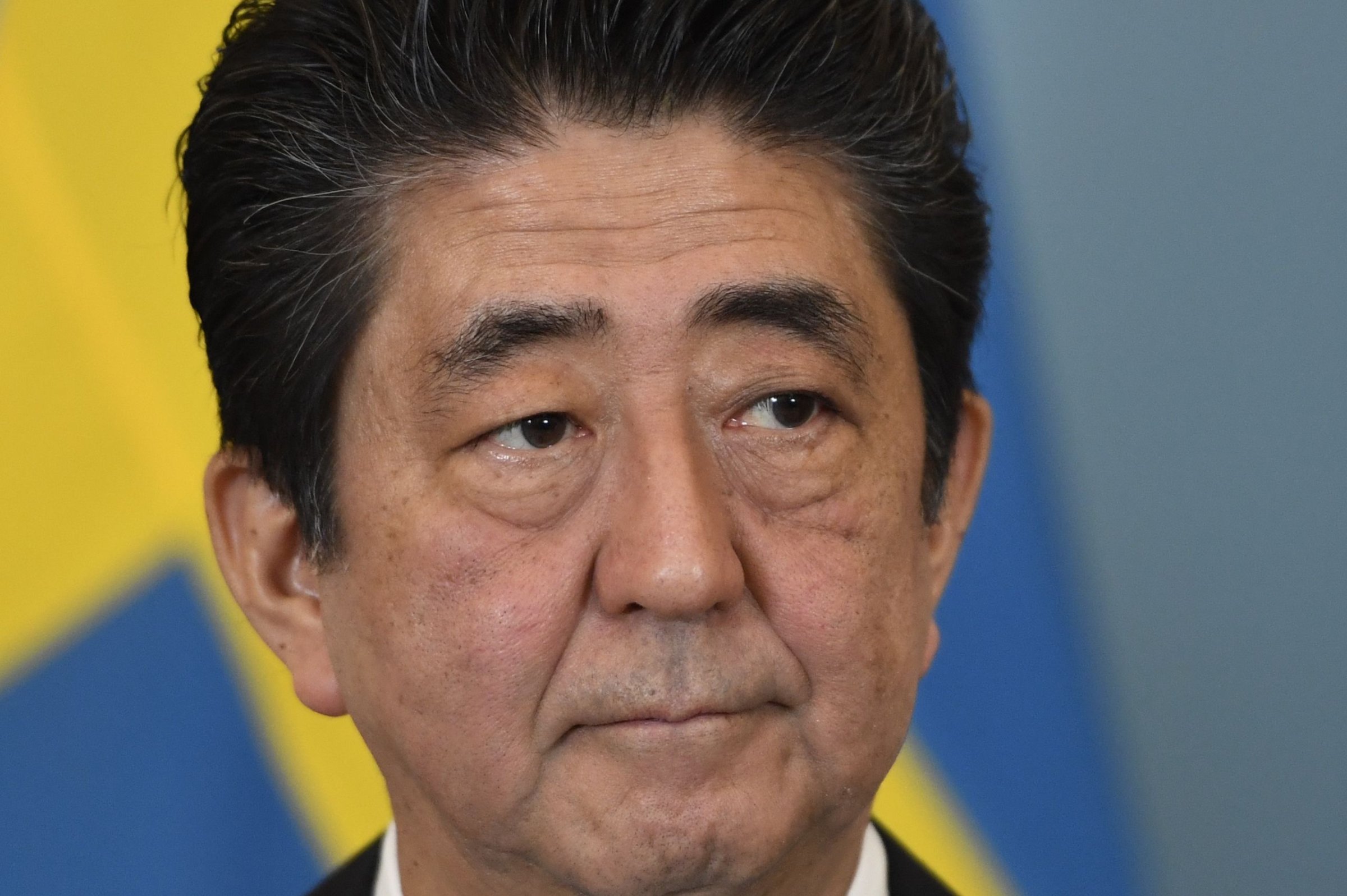
Japanese Prime Minister Shinzo Abe will reshuffle his cabinet and party leaders early next month, moving to shore up his worst levels of popular support since returning to power in 2012, following a historic loss in a Tokyo assembly election.
Last week’s loss, delivered by a novice political group, spotlights Abe’s potential vulnerability after nearly five years in power, with many blaming voter perceptions of arrogance on his part and that of his powerful Chief Cabinet Secretary, Yoshihide Suga.
Opinion polls on Monday showed Abe’s popularity at its lowest since he returned to power late in 2012, with support of 36% in one conducted by the conservative Yomiuri Shimbun newspaper – tumbling from 49% a month earlier.
Another, in the liberal Asahi, found support of 33%, a slide from 38% from a week earlier.
Abe, in Europe for a summit of leaders of the G20 grouping of nations, told traveling media he would retain core officials in the reshuffle of the cabinet and ruling Liberal Democratic Party (LDP) officials planned for August.
“I will reshuffle the LDP leadership and the Cabinet members early next month, aiming to renew peoples’ feelings,” Jiji news agency quoted Abe as saying in Stockholm.
“Stability is extremely important to deliver results. The core structure of the Cabinet should not be changed so often.”
Japanese media said the remarks mean he will retain Deputy Prime Minister Taro Aso, who also serves as finance minister, along with Suga and LDP number two Toshihiro Nikai, while ditching gaffe-prone Defence Minister Tomomi Inada.
He also said he would skip a planned visit to Estonia and would arrive back in Japan a day early to visit the flood-devastated southwest.
Exactly a year ago, Abe’s ruling bloc stormed to a landslide victory in an election for parliament’s upper house, despite concerns over his economic policies and plans to revise the nation’s postwar constitution.
His administration has since been battered by a scandal over suspicions of favoritism to a friend’s business, verbal gaffes by cabinet ministers and concerns about Abe’s intentions to revise the constitution.
Read More: Four Things to Know About Japan’s Opposition Leader Renho Murata
He faced another challenge on Monday, when former vice education minister Kihei Maekawa testified to parliamentary panels on concerns Abe may have intervened to help win approval for a veterinary school run by an education group whose director, Kotaro Kake, is a friend.
Abe has repeatedly denied doing Kake any favors but the panels were set up even though parliament is in recess.
On July 2, Tokyo Governor Yuriko Koike’s novice Tokyo Citizens First party and its allies – including the LDP’s national coalition partner – won a landslide victory in the assembly election, taking 79 of the 127 seats up for grabs.
The LDP got 23 seats, its worst ever result in the capital and less than half its pre-vote tally.
More Must-Reads From TIME
- The 100 Most Influential People of 2024
- Coco Gauff Is Playing for Herself Now
- Scenes From Pro-Palestinian Encampments Across U.S. Universities
- 6 Compliments That Land Every Time
- If You're Dating Right Now , You're Brave: Column
- The AI That Could Heal a Divided Internet
- Fallout Is a Brilliant Model for the Future of Video Game Adaptations
- Want Weekly Recs on What to Watch, Read, and More? Sign Up for Worth Your Time
Contact us at letters@time.com